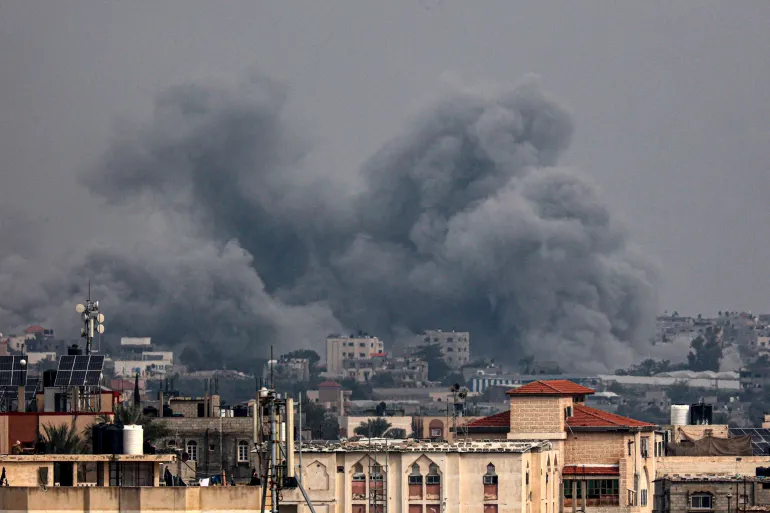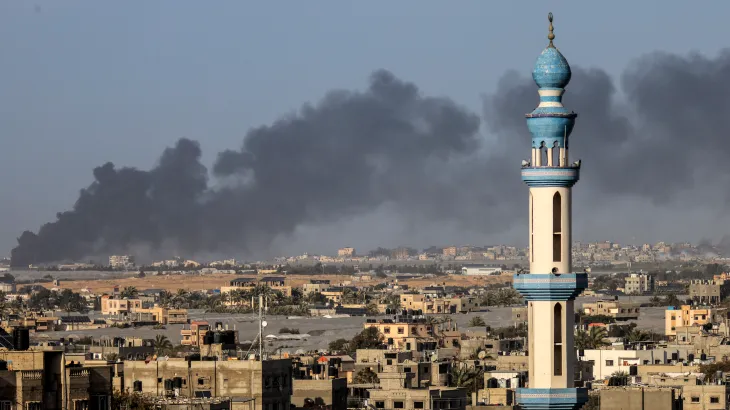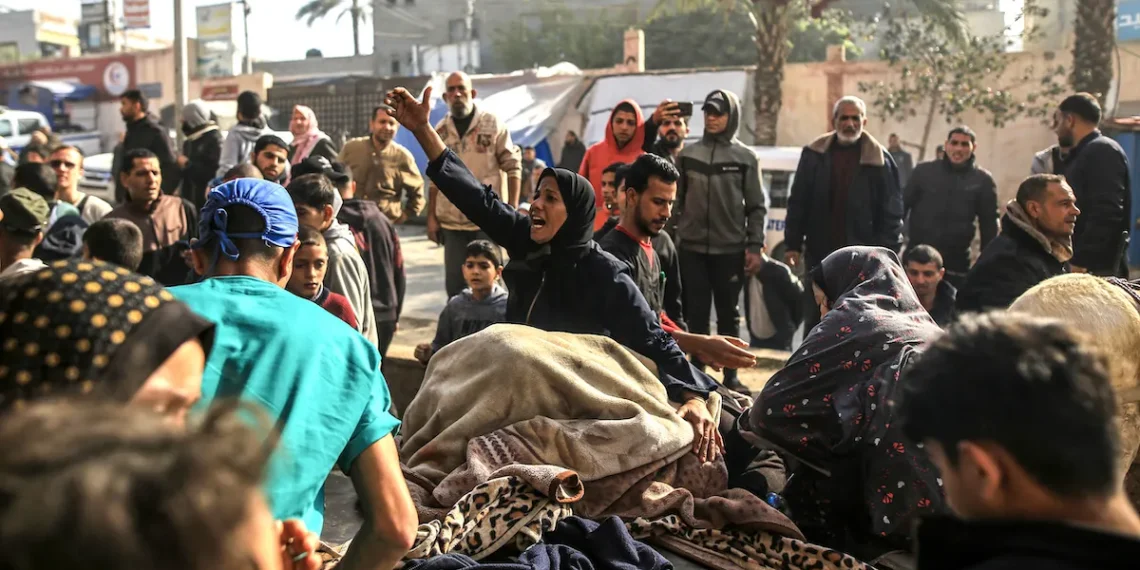Medical facilities in the southern Gaza city of Khan Younis are grappling with extensive damage as Israeli forces intensify their assault, exacerbating the humanitarian crisis in the region. Palestinian health officials report numerous casualties and evacuation efforts are impeded by the dire situation on the ground.
In the latest offensive in western Khan Younis, controlled by Hamas, dozens of people have been killed and wounded. The Nasser Medical Complex, Al Amal Hospital, and the Palestine Red Crescent Society headquarters, all crucial healthcare institutions, find themselves in the midst of the turmoil.
Dr. Ahmad Al Moghrabi, from the Nasser Medical Complex, conveyed the catastrophic conditions in a video shared on social media. The medical staff is besieged, and evacuation routes are impassable due to the presence of troops and bodies strewn across the only available roads. The Nasser Medical Complex is overwhelmed, grappling with more serious injuries than it can handle, while intensive care units operate at full capacity.
Médecins Sans Frontières (MSF) staff at the Nasser hospital describe a palpable sense of panic among patients, staff, and displaced individuals sheltering inside the facility. The strikes have caused the ground to shake, adding to the distress of those seeking refuge. The hospital wards are filled to capacity, and exit routes are blocked, hindering the evacuation of both medical staff and patients.

The Israel Defense Forces (IDF) justify their military operations, stating that they are targeting Hamas outposts, infrastructure, and command and control centers in Khan Younis. The densely populated civilian areas, however, complicate the precision of these operations.
The ongoing military operation, led by Israel’s 98th Paratroopers Division and initiated on Sunday, is expected to last for several days. The IDF emphasizes the strategic goal of dismantling Hamas’ military framework in western Khan Younis, underscoring the necessity for precise operations.
The situation in Khan Younis is dire, with Israeli forces reportedly seen at sensitive sites such as hospitals and shelters within densely populated civilian areas. The Palestine Red Crescent Society reports that its headquarters and Al-Amal Hospital, situated in the same neighborhood, are under siege, with Israeli forces targeting anyone attempting to move into the area.
Despite the challenges, a field ambulance point has been established outside the Al-Amal neighborhood to ensure the continuity of medical operations. Nevertheless, the organization underscores the extreme danger of the situation, with 80 percent of entrances and exits to Al-Amal obstructed. Ambulance teams face significant difficulties in reaching the wounded due to the continuous bombardment.
World Health Organization (WHO) Director-General Tedros Adhanom Ghebreyesus expresses deep concern over the reports of fighting, emphasizing that the violence near Al-Amal Hospital and the raid on Al-Khair not only jeopardize patients and those seeking safety within these facilities but also impede the ability to reach and provide care to newly injured individuals outside the hospitals.
The Gaza Strip, already grappling with a dire humanitarian crisis, faces intensified challenges as Israel’s assault devastates vital infrastructure, exacerbating food, fuel, and water shortages. Over 1.9 million Palestinians have been forcibly displaced, and 16 out of 36 hospitals across the strip are partially functioning, with some at risk of closure.

The Health Ministry reports that the number of Palestinians killed in Israeli attacks in Gaza since October 7 has risen to 25,295, with at least 63,000 injuries recorded. However, due to limited access to the area, CNN cannot independently verify these figures. Amid the violence, Hamas’s militant wing, the Al Qassam Brigades, claim to be fighting in the western Khan Younis area, asserting the use of anti-personnel missiles to kill Israeli soldiers.
Residents like Ahmed Naseem, living in the Al-Amal neighborhood, describe the intense shelling that began in the early hours of Monday, causing immense fear among the population. The unpredictable nature of the attacks has left individuals reluctant to open windows or venture to rooftops, fearing potential drone strikes. The collateral damage extends to critical infrastructure such as water tanks, intensifying the challenges faced by the residents of Khan Younis.





